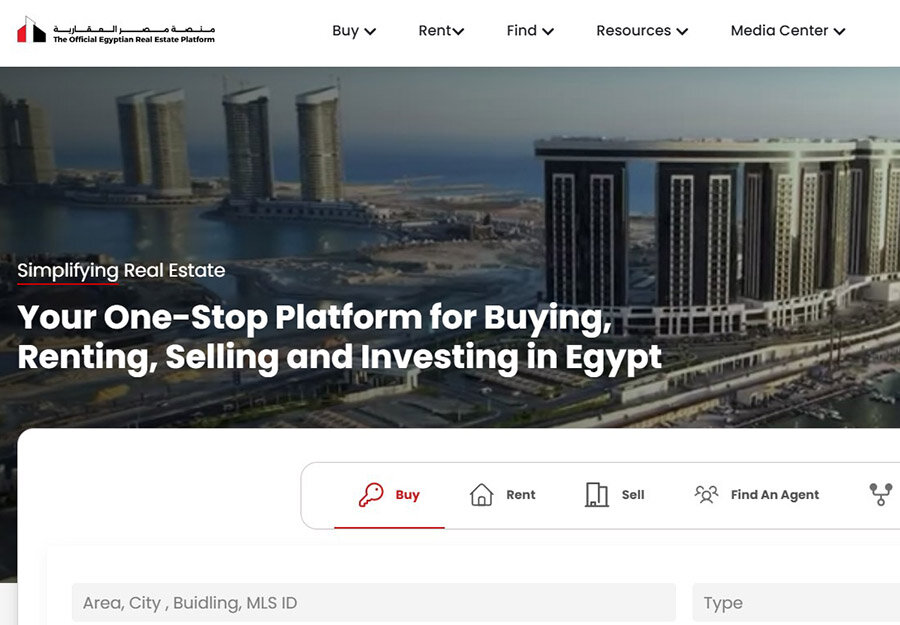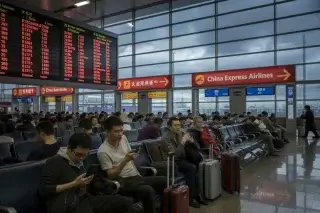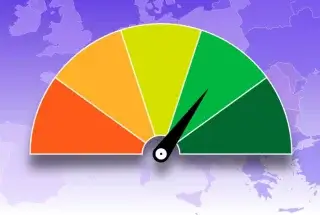Egypt Launches Real Estate Oversight System

Photo: Unsplash
The Egyptian authorities are undertaking major real estate reforms. A new regulatory unit has been created to oversee developers, agents, and marketing firms, according to Daily News Egypt. Additionally, a digital platform will host verified information on properties and market participants.
The regulatory body, launched mid-2025, is tasked with overseeing market interaction, simplifying registration procedures, inspecting building conditions, and introducing metrics for market activity—all aimed at boosting transparency and minimizing violations.
As part of this initiative, the government introduced the Egypt Real Estate Platform, a centralized digital portal to standardize and validate property transactions. It features a verified database of registered properties, licensed developers and brokers, consumer protection tips, and complaint forms.
The move follows a surge in unlicensed brokers and unchecked advertising agencies. This lack of regulation fragmented the sector and eroded investor confidence. Speculative investment also intensified in 2024, with buyers reserving properties they couldn’t afford in hopes of reselling at a higher price or simulating demand. When prices didn't rise or devaluation hit profitability, these deals were canceled—sometimes costing developers billions.
Developers began raising prices based on fake demand, inflating early-stage pricing while actual sales stagnated. As a result, companies imposed stricter buyer filters, higher down payments, and flexible installment schemes. Meanwhile, the resale market struggled due to high prices and weak demand.
In H1 2025, property prices rose by 20–30% versus late 2024. In Cairo’s Fifth Settlement, prices reached EGP 60,000–200,000/m² ($1,200–4,000), and in Sixth Settlement, EGP 120,000–160,000 ($2,400–3,200). West Cairo properties range from EGP 50,000 to 170,000 ($1,000–3,400), and North Coast prices hit EGP 70,000–200,000 ($1,400–4,000). Premium secondary homes range from EGP 800 million to 1 billion ($16–20 million).
Sales also grew despite rising prices. Egypt’s top 10 developers sold EGP 290 billion ($9.4 billion) in property in H1 2025, up 23% year-on-year. The average unit price increased 25% to EGP 15.7 million ($314,000).
Analysts cite inflation over 30%, currency devaluation, and rising import costs as key drivers. Scarcity of land in prime zones and continued speculative demand—mainly pre-sale buyers betting on price increases—also fuel market pressure.
Experts foresee another 20–30% price hike in H2 2025, though currency volatility and declining consumer purchasing power remain threats. The Central Bank’s recent 3.25% rate cut may temporarily soften macroeconomic pressures, but no major trend reversal is expected. Still, regulatory reforms could reshape market expectations.
Housing Minister Sherif El-Sherbini emphasized the need for an integrated database covering all real estate operations. He also urged developers and market participants to cooperate in aligning the sector with global standards. Officials hope the reforms will bring order to the sector, protect buyers, and deter fraudulent activity.
See also:
Egypt changes citizenship-by-investment program
95% of Egypt's properties remain unregistered
Global real estate trends and Knight Frank forecast
How UHNW behavior is reshaping global real estate: Wealth Report 2025
Top countries for investment residence in 2025: Henley & Partners ranking
Подсказки: Egypt, real estate, regulation, digitalization, housing prices, speculation, investment risks, government policy








